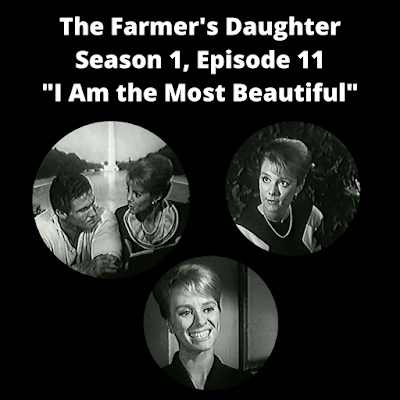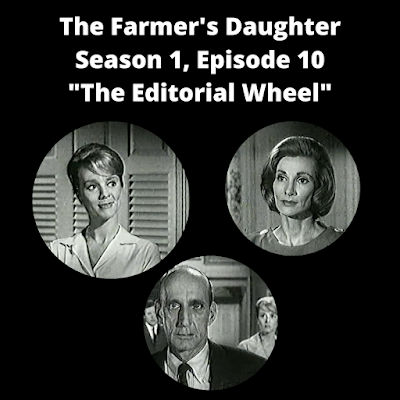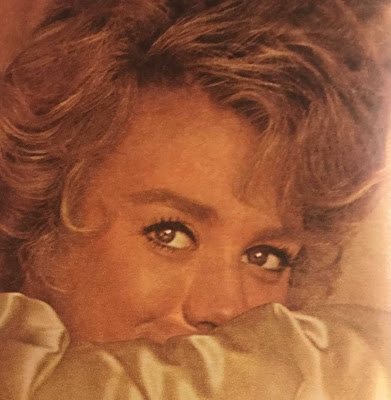Farmer's Daughter
Season 1, Episode 11: I Am the Most Beautiful
Originally aired December 4, 1963
The Morley family is gathered in front of the television set, eyes glued to the boxing match being broadcast—all except Katy, who is completely unimpressed with the sport. She watches as famous boxer Clancy (William Smith) addresses the camera and says, "Wise as Solomon. Brave as Saul. I am the most beautiful of them all!" Glen remarks, "What a character!" and Katy counters, "What a waste of time!"
Suddenly, a familiar face appears on the screen and Katy's interest is piqued. Her old neighbor Max (Karl Swenson) is Clancy's trainer and Katy is eager to see him again, promising to gain the family access to Clancy during her meeting. When Katy visits with Max and Clancy, the boxer is instantly attracted to the "beautiful fox...the only fox I've ever seen almost as beautiful as me."
The Morleys are thrilled to tour the gym where Clancy trains, but Katy is appalled by the brutality of the match they witness. Katy's sensitive ways and undeniable beauty draw Clancy closer to her. As Max warns him to focus on training and not a "foolish girl," Clancy answers "a foolish, beautiful girl." And when Max continues his warning, calling Katy a "snoopy girl" and a "bad luck omen," Clancy dreamily repeats, "snoopy, beautiful girl" and "beautiful, bad luck omen."
Clancy visits Katy at the Morley home, where she calls him a bully and advises him to flex his brain instead of his muscle. When he confides that he really does not enjoy boxing, Clancy becomes Katy's student in pacifism. In front of D.C. landmarks, Katy reads to Clancy the peaceful words of Gandhi. So taken with this new philosophy and the lovely Swedish lass, Clancy quits training and shows up at the big match prepared only with Gandhi's words, "I have implicit faith...that mankind can only be saved through non-violence." The celebrated fighter is knocked out on the first punch.
On returning from the ring, the injured boxer comically tells Katy where her training went wrong. "I am a pacifist. But he's a fighter. Both men must believe in peace or one will be killed!" Time passes and the episode ends with Katy and Glen watching television and catching Clancy in his new role as a theatrical wrestler known as the Super Swede.
Production Notes
Due to the gym and match scenes, a whopping sixteen cast members are listed in the Day Out of Days schedule for "I Am the Most Beautiful." Listed as Screen Gems production #3823, the episode's director is Inger's The World, The Flesh and the Devil costar (and Audrey Hepburn's husband) Mel Ferrer. As always, Peter Kortner and Herb Wallerstein serve as producer and assistant director, respectfully. Filming started on October 11, 1963, and finished on October 15, 1963.
Main cast members Inger, William Windom, Cathleen Nesbitt, Mickey Sholdar, Rory O'Brien, and Philip Coolidge worked all days. William Smith as Clancy and Karl Swenson as Max also worked the full shooting schedule. All other cast (those serving as referees, announcers, fighters, and audience) only reported for one day of shooting. The notes indicate that boxer Clancy was originally going to be called Brutus.















